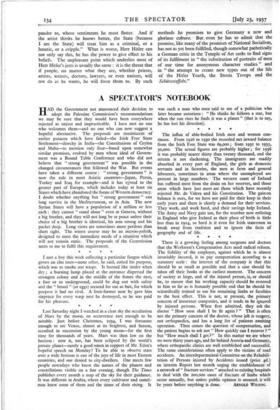There is a growing feeling among surgeons and doctors that
the Workmen's Compensation Acts need radical reform. The liability of the employer, against which he is almost invariably insured, is to pay compensation according to a statutory scale : the interest of the company is that this should be as small as possible and that a case should be taken off their books at the earliest moment. The concern of society at large, and of the injured person, is, or should be, to ensure that his working capacity should be restored to him so far as is humanly possible and that he should be scientifically trained to use his remaining limbs or faculties to the best effect. This is not, at present, the primary concern of insurance companies, and it tends to be ignored by injured persons. When first admitted, they ask the doctor " How soon shall I be fit again ? " That is often not the primary concern of the doctor, whose job is surgery, not orthopaedics, and has a long list of patients awaiting operation. Then comes the question of compensation, and the patient begins to ask not " How quickly can I recover ? " but "How much shall I get ?" In this matter we are where we were thirty years ago, and far behind Austria and Germany, where orthopaedic clinics are well established and successful. The same considerations often apply to the victims of road accidents. An interdepartmehtal Committee on the Rehabili- tation of Persons injured by Accidents issued (price 4d.) an interim Report last month urging the establishment of a network of" fracture services " attached to existing hospitals to deal 'with the 200,000 cases of fracture of limbs which occur annually, but unless public opinion is aroused, it will be years before anything is done. ARNOLD WILSON.






























































 Previous page
Previous page